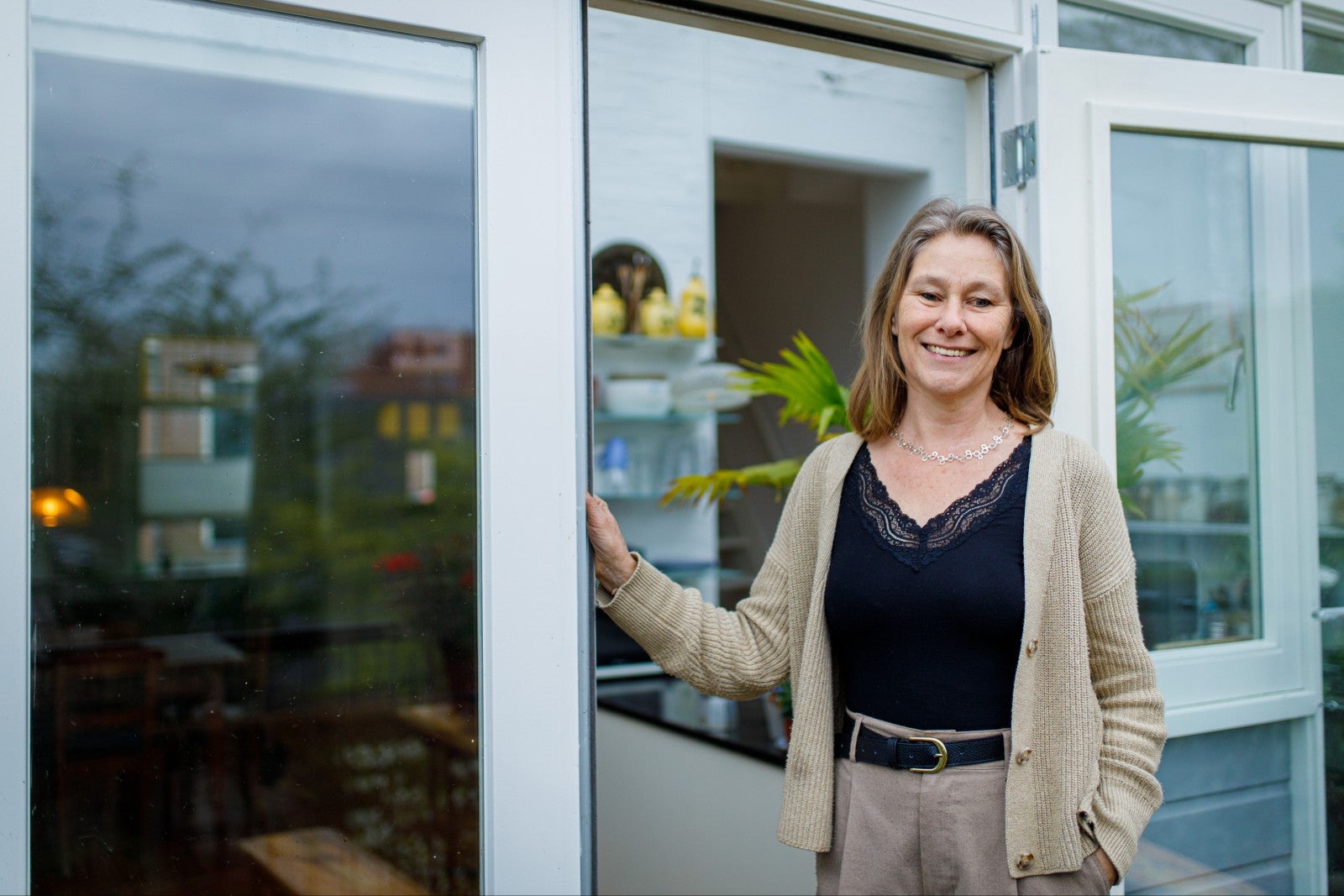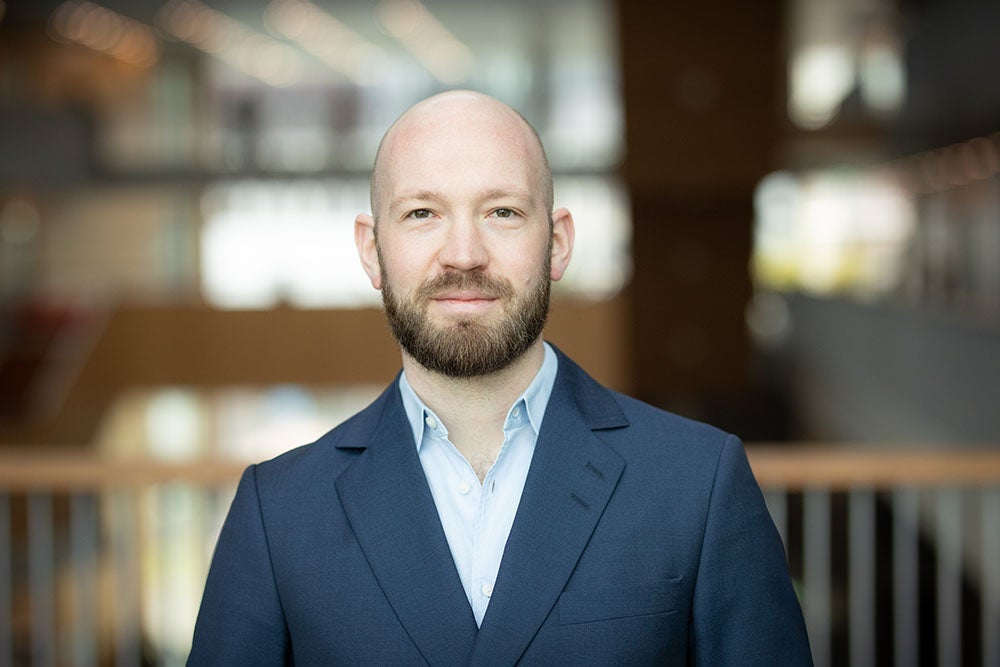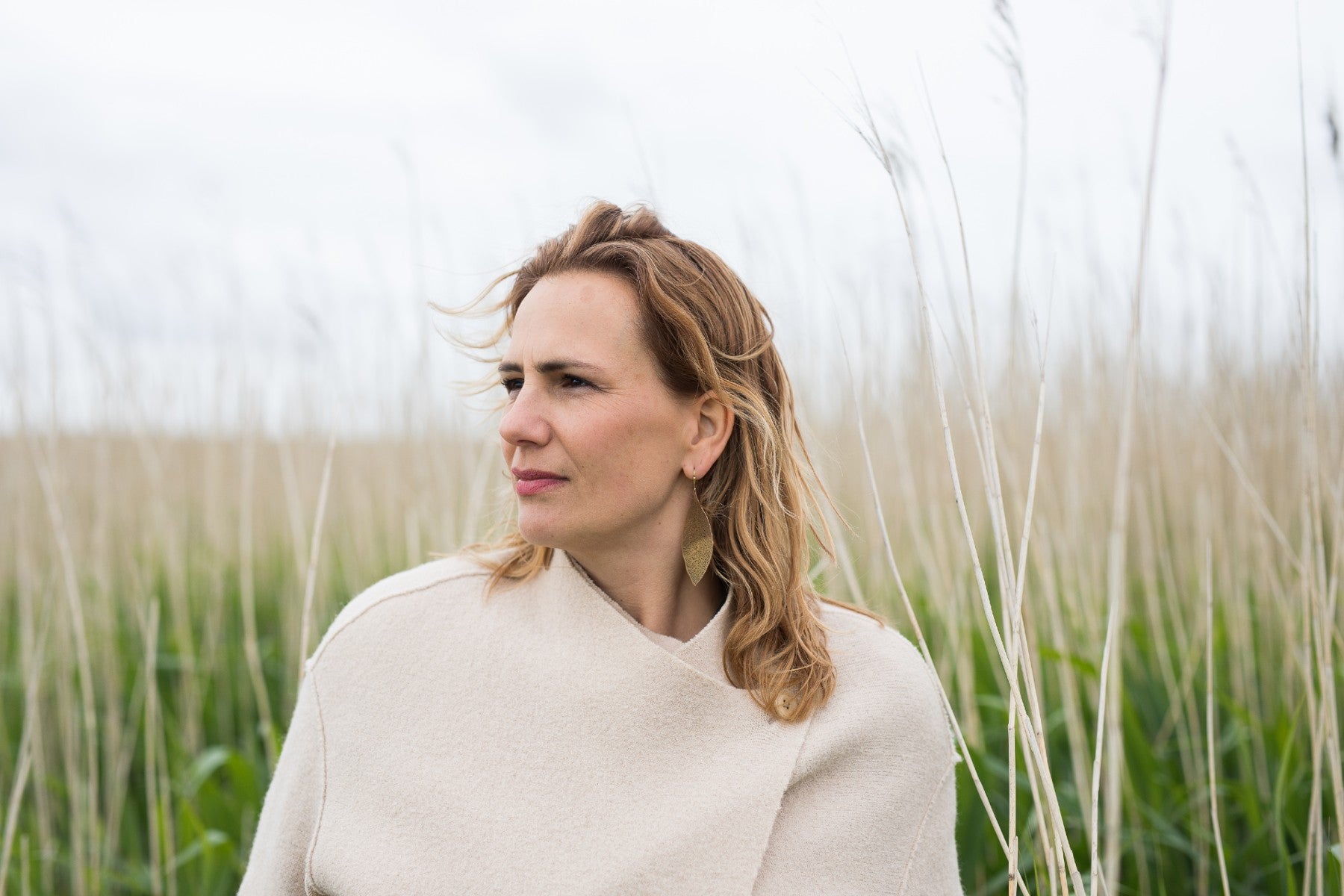Writer Corien van Zweden (61) studied theology at VU Amsterdam, but lost her faith during a trip to Pakistan. "I got the craft of writing in return."
Via a video connection, we speak to Van Zweden from Vienna, where she is recovering from all the publicity surrounding her recently published book Het geloof van mijn vader (The Faith of My Father). The book is based on the diaries inherited from her father and explores how war and faith permeate through three generations.
Why did you decide to study theology at the VU back then?
„If I were to study, it was obvious it would be at the VU. I come from a reformed family. Two uncles and an aunt preceded me, and the VU van was in my grandparents' closet. The funny thing is, I don't remember exactly why I chose theology. I found philosophy and languages interesting, but a subject like dogmatics? I found it alienating to dissect faith so rationally. Many students within theology were on their way to becoming pastors, but I felt like a bit of an odd one out. I wasn't exactly sure why I was there myself. Looking back, I feel like it was almost a borrowed interest."
„If God is almighty, why doesn't he stop the evil? He wanted to solve that problem through reasoning; there had to be an explanation."
Were there theological discussions at your dinner table in the past?
„Faith was incredibly present in our family, but what was actually most important was how faith and war were so intertwined. My father had come into conflict with the reformed faith because of his war experiences, questioning how a God could exist who would allow such things to happen. If God is almighty, why doesn't he stop the evil? He wanted to solve that problem through reasoning; there had to be an explanation. And he didn't want to lose his faith, which happened to many of his peers. He would spend nights typing on his typewriter. He wrote entire books and essays on the subject."
While your grandfather's war experiences actually confirmed his faith.
„My grandfather was arrested at the naval yard in Den Helder, where the Germans caught him committing acts of resistance. During his subsequent imprisonment in Germany, he was completely starved in solitary confinement. He became so desperate from hunger that he fell to his knees, and his prayer consisted of just one word: bread. Later that day, a guard brought a pot of soup with some crusts of bread in it, and he added an extra crust of bread to my grandfather's bowl. He interpreted that as an answer to his prayer."
„My grandfather was so broken by hunger from the war that he died from its consequences. It almost sounded like a sadistic God to my father."
„My father came into conflict after the war because of that story. What a strange God, he thought, if he gives a crust of bread to one prisoner, and lets the rest, who might be even hungrier, starve. That one crust of bread stayed with my grandfather. He was so broken by hunger from the war that he died from its consequences. It almost sounded like a sadistic God to my father."
Can you recall if those were the questions you were grappling with during your studies?
„Yes, I wanted to solve those questions. I think I was such a child, to borrow the words of Ischa Meijer, who wanted to make everything right. I think I somehow thought: if I pursue this study, then I can find answers to those questions on his behalf."
„On his deathbed, my father said I could do whatever I wanted with the diaries."
Was there a specific moment when you decided you wanted to do something with your father's diaries?
„On his deathbed, my father said I could do whatever I wanted with the diaries. He said I could read them, write about them, or quote from them. That's a fairly concrete idea of what I could do with them. He didn't suggest burning the diaries in the backyard. From that moment on, the idea for this book lived with me."
Did your father, also a journalist and writer, want to do something with them himself?
„While writing, I discovered that he had actually spent his entire writing life working on manuscripts based on the diaries. If he was satisfied with them, he would send them to a publisher. If he didn't receive a positive response, he would rewrite them and then go to another publisher. He even sent a manuscript to a publisher when he was eighty, which in hindsight was a year before his death. It's somewhat oppressive. I found it a difficult legacy."
„This had to become my book. Not an attempt to write the book he couldn't get published."
„It was also very painful to read about that concerning your own father. Because it has something tragic about it. I had to detach myself from the idea that I was now writing his book on his behalf. Because I had already done a study on his behalf that I now also think back on: why? This had to become my book. Not an attempt to write the book he couldn't get published."
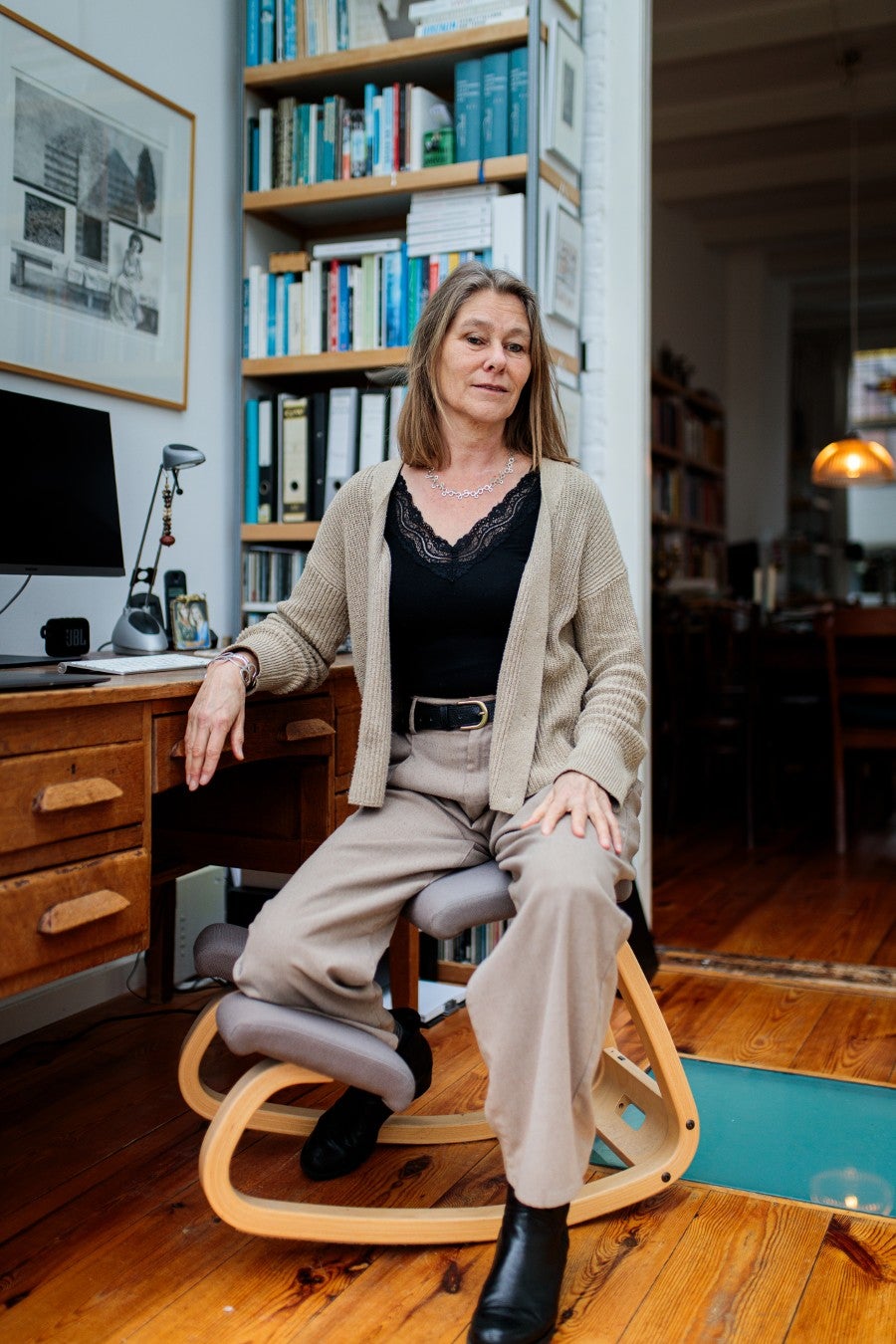
You've also chosen to incorporate your own life into the book.
„It had to be a book about my own questions. I was genuinely curious about how the experiences, but also the issues that the generations before you grappled with, are passed on and how they influence generation after generation."
„My father had very severe migraines. He would sometimes lie in bed in the dark for days with terrible pain."
„My father had very severe migraines. There were no good medications at that time. He would sometimes lie in bed in the dark for days with terrible pain. Unfortunately, I inherited the tendency for migraines from him. I think my father's illness was rooted in war traumas. He would probably disagree with me on this because he never wanted to see it that way. According to him, it was a physical ailment, and you only went to a psychiatrist if you were crazy, which he wasn't. That's also a bit of a generational thing. But he absolutely didn't want that. Besides, he kept a diary and believed he was in harmony with himself. Anything he had to figure out, he figured out himself."
„I very rarely suffered from migraines; years could go by without an attack. But during the writing of the book, it suddenly resurfaced. When I was writing about my grandfather in the concentration camp, I would get a migraine attack every time I opened my laptop. And at first, you don't want to realize it, you think it's a coincidence. But when it happened three times in a row—the third time, there were three attacks in a row, and the pain lingered for six weeks—I thought: you don't have to be a psychologist to see a connection here. I had to stop writing the book, and I really put it aside. It felt like I was trespassing forbidden ground, like I was getting too close."
Nevertheless, the book is now out there.
„A week after I decided to stop, I got a call asking if I wanted to contribute to a book about the womb. I immediately got excited and thought: see, I don't have a burnout, I do feel like working. While writing that book, I also started delving into migraines. I was excessively afraid of it. Even more afraid than of cancer, which I've had twice. I discovered how my migraines relate to trauma and war. That led to a tremendous liberation. I found out it was so intertwined that I even took on my father's headaches when I started writing."
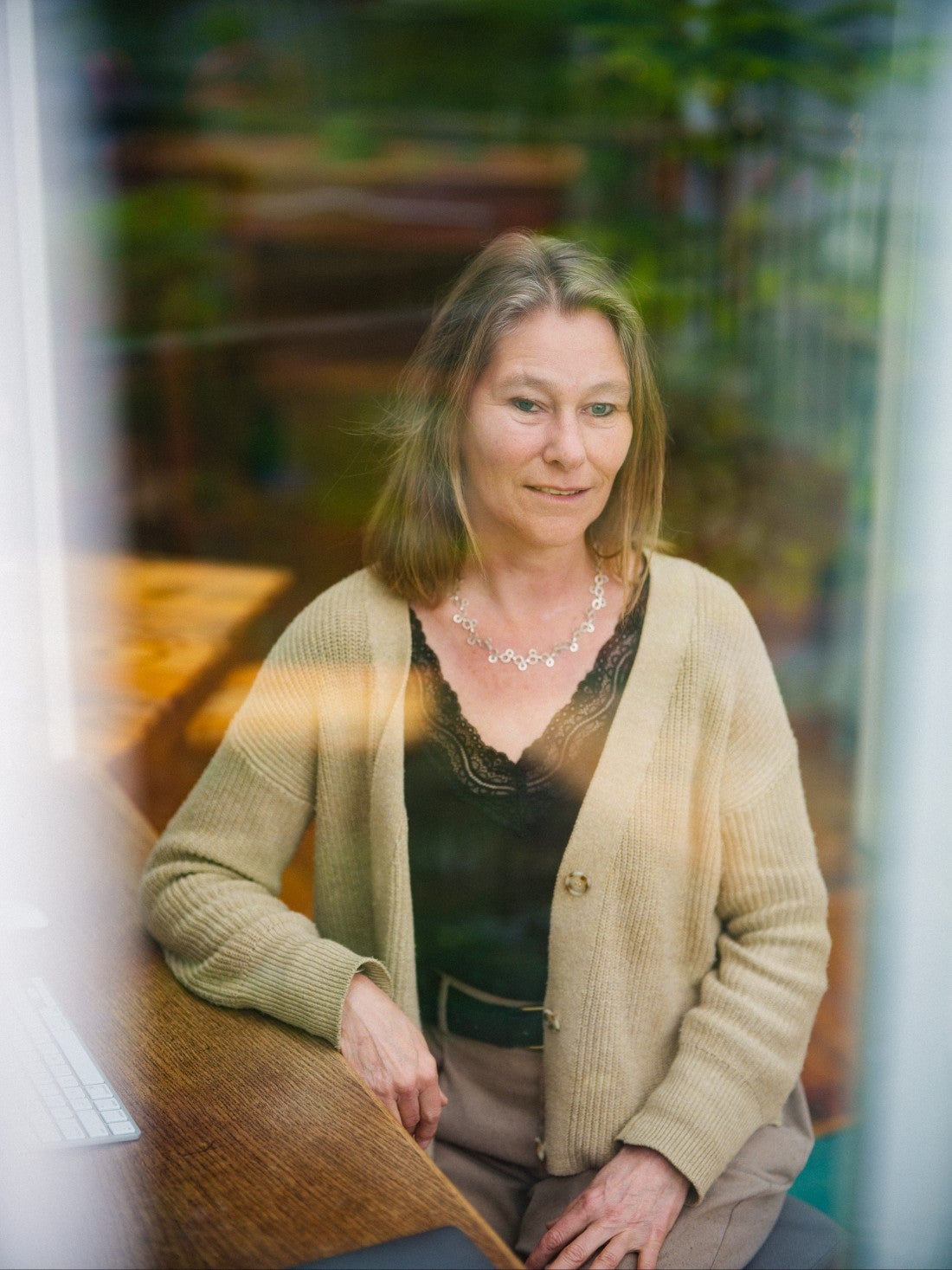
Did you always know you wanted to write?
„After graduating, I considered doing a PhD on the same subject as my thesis: about 16th-century female martyrs of the Reformation. But first, I wanted to do something completely different and by chance, I ended up in a children's home in Karachi, Pakistan. There I was confronted with so much misery, so much poverty. One evening, as I looked out over the city after work, I suddenly felt intrinsically that I couldn't reconcile it with my faith."
„The editor would then send me a book by post, which took four weeks to reach the remote village where I was, and I would send back my article on a floppy disk."
„I kept a travel diary during that time, and when I read it aloud one evening to my Dutch colleagues, I received such enthusiastic reactions that I decided writing should become something serious. I lost my faith during that trip, but I gained my profession. And I decided that I wanted to see more worlds than just the reformed world I came from."
„Shortly after that, I left with the man I was already married to for the Amazon region in Bolivia, where he worked as a biologist, and I wrote for various magazines. I also wrote essays for VU Magazine about religious and philosophical books. The editor would then send me a book by post, which took four weeks to reach the remote village where I was, and I would send back my article on a floppy disk. You can't imagine now that so much effort was made for an article. A digital interview like ours is much easier now."
Corien van Zweden, "Het geloof van mijn vader. God en de oorlog in drie generaties," De Bezige Bij, 2024.

